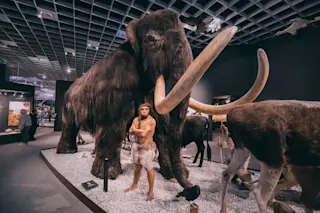With great ambition comes the opportunity for stupendous failure. If one does not strive, one can not fail in a bold manner. And Ian Morris is bold indeed. I read his previous book, Why the West Rules--for Now: The Patterns of History, and What They Reveal About the Future, and found in enjoyable. And yet it isn't that original a departure from many economic histories one might encounter. This is a major worry I have with Morris' new book, The Measure of Civilization: How Social Development Decides the Fate of Nations. Is there anything here that Angus Maddison fans will find novel? If you know me, you'll also understand that broadly I share much of Ian Morris' biases in regards to the dominant forces influencing the arc of human history. We may not be Marxists, but the flavor is distinctly Marxist, marginalizing ideas, and often deriving them from the context of broader historical forces. If you have a relatively reasonable familiarity with the detailed histories of several civilizations, as I do, it is difficult not to be struck by the parallels. The caveat is not to get so carried away with the broader trends, and lose sight of critical local detail. The mixed profile of Morris prompts an informative response from Peter Turchin. He proposes a new history of quantitative data and formal models. In some ways this is not new, but from his post I get a sense that Turchin believes "Big Data" is going to change history too. One can analogize the specialist historian rooting through an archive to a classical geneticist, while future scholars may be experts at data mining, to find the patterns within the archives. Perl for historiansI?
The full shape of human history
Explore Ian Morris's new book, 'The Measure of Civilization', and its bold take on social development and the fate of nations.
More on Discover
Stay Curious
SubscribeTo The Magazine
Save up to 40% off the cover price when you subscribe to Discover magazine.
Subscribe












